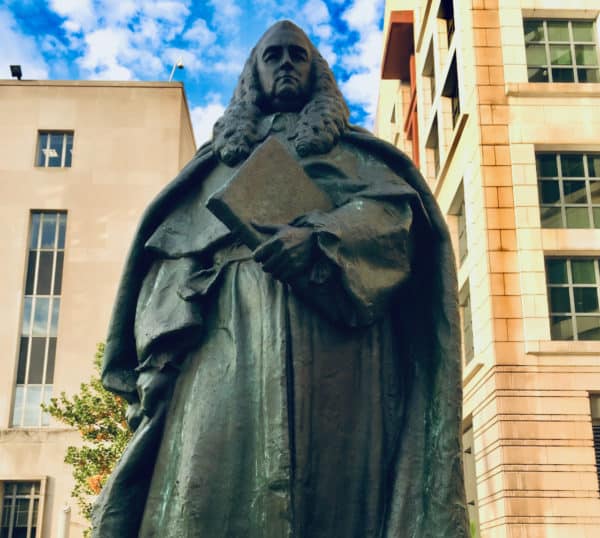
Last week, Crowdfund Insider referred to several Securities and Exchange Commission (SEC) enforcement actions that addressed the sale of unregistered securities by issuers of initial coin offerings (ICOs). Penalties assessed by the SEC are now coming due for several prominent enforcement actions brought by the SEC. Yet, questions remain as to whether, or not, many of these issuers have the resources to cover these costs – much less any refunds driven by a recission requirement.
A report in WSJ.com mentioned the Gladius Network LLC settlement where the company self-reported its alleged transgressions. This team received a slap on the wrist for its approach. Others have not been so fortunate.
CI received a note from Philip Moustakis commenting on several of the ICO enforcement actions. Moustakis is a former senior counsel at the SEC who investigated and litigated the SEC’s first-ever Bitcoin-related enforcement action. He is also an early member of the SEC’s Cyber Unit working closely on distributed ledger technology issues. Currently, Moustakis is counsel at Seward & Kissel LLP.
Moustakis explained that in announcing its settlement with Gladius, the SEC heralded the fact that the company self-reported its ICO, took remedial steps, and cooperated with the SEC in its investigation as reasons a penalty was not imposed. Just a few months prior, the SEC imposed a $250,000 penalty against both Paragon Coin, Inc. and AirFox for unregistered ICOs of comparable size. All three companies in their respective settlements with the SEC agreed to return funds to investors who purchased tokens in the ICO and requested a refund.

Because there were so many ICOs of equal or greater size during the 2017-2018 ICO craze that were cut-and-dried securities offerings, Moustakis said he had expected to see a self-reporting initiative of some kind following the Gladius settlement.
“… An initiative in which the SEC offered ICO promoters who self-reported, came into compliance, and offered refunds to investors who purchased in the ICO would receive similar no-penalty settlements. Now we may be seeing why that has not happened,” explained Moustakis. “As a practical matter, it may not be feasible for many firms to come into compliance. On the whole, token values have declined since the craze, meaning many investors will opt to put their tokens back for a refund. And with many of the blockchain-based platforms linked to token offerings still undeveloped or in development, the money may not be there.”
Moustakis said that it remains to be seen whether the apparent difficulties some of these companies have with complying with their settlement agreements will color the SEC’s approach in future cases.
We contacted Moustakis with several more questions regarding what happens when a settlement with the SEC cannot be paid.
“The SEC may agree to provide a respondent with more time, which is what I would expect them to do, so long as the respondent is endeavoring in good faith to meet its obligations under the settlement,” Moustakis stated. “At some point, if the SEC determines the respondent is not endeavoring in good faith to do what it agreed to do, the SEC may seek to unwind the settlement and proceed with its prosecution. It is also possible that the delay here is attributable to investors having some difficulty with the claims processes created in connection with the settlements, which I would also expect the SEC to work through.”
Regarding rescission offers, if an issuer cannot meet the demand of investors asking for their money back – what happens? Does the company simply file for bankruptcy?
Moustakis explained:
“Strictly speaking, the settlements do not provide for the ICO issuers to make rescission offers – which can be a lengthy and costly process, requiring additional filings – but rather an agreement to return funds to investors who purchased tokens in the ICOs and want to put those tokens back to the issuers for a refund. It is for the SEC to enforce those settlements. But civil suits may also follow. Whether a suit would drive the issuer into bankruptcy would depend on the strength of the plaintiffs’ claims, the economics involved in meeting plaintiffs’ demands, and the financial condition of the company.”
Another attorney had indicated, in his opinion, that it was not practical for the SEC to assess penalties when it is pretty clear they will never be paid. Is there an alternative?
“The SEC can enter into a settlement with a respondent that does not include a penalty if the respondent can demonstrate he or she cannot pay. However, the SEC is not in the habit of waiving disgorgement, that is, that the respondent gives up the proceeds of any securities law violations committed, in the SEC’s view,” shared Moustakis. “But here the issue appears to be that the respondents cannot follow through on undertakings to which they agreed as a condition of their settlements, namely to refund investors who would prefer to have their money back rather than keep the tokens they purchased in the respective ICOs.”
In retrospect, would there have been a better approach by regulators to have better managed the ICO craze? The DAO report appears insufficient in hindsight.
Moustakis said, that in his view, the DAO Report did just what it was intended to do:
“… it put the industry on notice that under a traditional securities law analysis, on the whole, ICOs constituted securities transactions. There may have been those in the industry unwilling to hear that or not getting the greatest advice on the issue. To that end, more aggressive prosecution following the report may have given the report’s message greater teeth, but the SEC has a really smart team doing this work and, often, it comes down to resources.”

